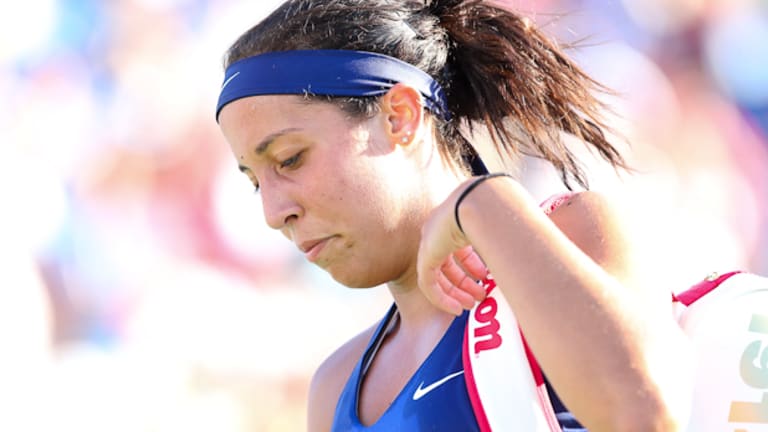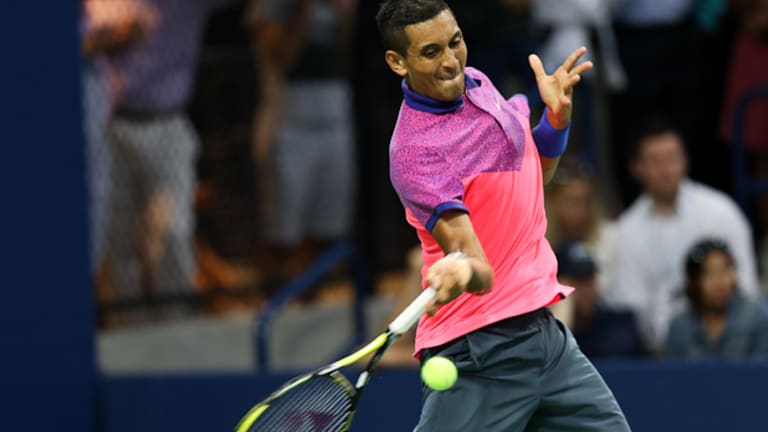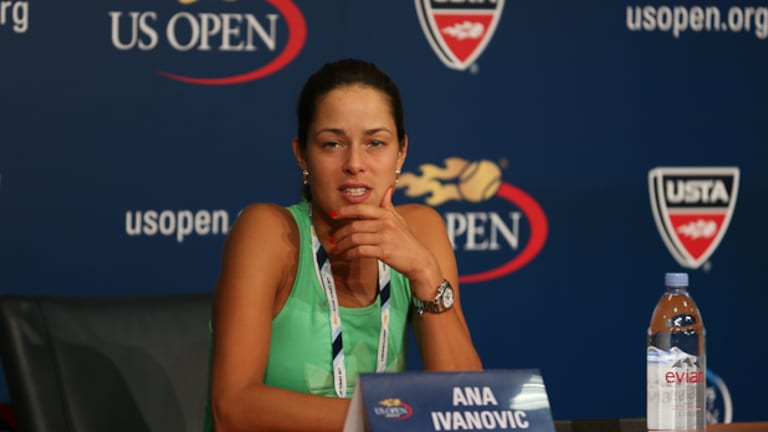NEW YORK—"At the end of the day, it was really a fight and a battle."
For once, those words, which were spoken by Genie Bouchard after her late-night win on Thursday, weren't just clichés.
Bouchard had been to the semifinals at the Australian Open and French Open. She had reached the final at Wimbledon. She had made the cover of the New York Times Magazine. She had inspired the Genie Army and the tweets from Bieber and the comparisons to Chris Evert. This week she had been the subject, on ESPN, of the poll question, "Which Grand Slam do you think Genie Bouchard will win first?"
But none of those things could help Bouchard when, in the middle of the second set, on a windy night in the big city, she suddenly hesitated. None of those things could help her when her streaky, often shaky, but very talented opponent, Sorana Cirstea, decided that she was going to make the most of the opportunity no matter what.
Bouchard and Cirstea threw everything they had at each other for the next set-and-a-half, and produced the first desperate, old-school U.S. Open night match of the tournament. Bouchard is known for her grit and determination, but Cirstea matched her in both departments the whole way. The Romanian came back from 0-2 in the second set to win it, and 1-3 in the third set to tie it. She also showed off the ball-striking talent we've only been treated to intermittently over the years.
But Bouchard still won. Forget the magazine covers and the stuffed Wombats; Bouchard still won this match, against an opponent who was poised to outplay her, and a half-crocked New York crowd that didn't mind seeing her lose. Bouchard saw Cirstea's best game and found a way to take her out of it. Sorana was out-hitting her when they went toe-to-toe, so Genie made her run from side to side. In the final game, down 0-30 at 5-4, having been broken four times already, Bouchard came up with her best four service points of the match. She hit her second ace at 0-30, and a big service winner down the T at 30-30.
No amount of hype, and nobody's army, can help you do that.


